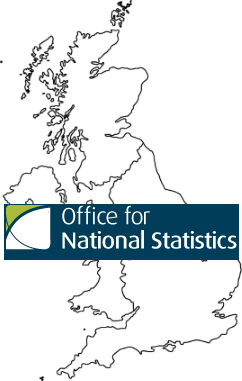ONS says net migration reached record 336,000 in the year ending June 2015
The latest quarterly figures from the Office for National Statistics (ONS) estimate that net migration to the UK reached a record 336,000 in the year ending June.
 Net EU migration was up by 42,000, while non-EU migration increased by 36,000.
Net EU migration was up by 42,000, while non-EU migration increased by 36,000.
There was also a significant increase in asylum applications, up 19 per cent to 29,024.
BBC News quoted Immigration Minister James Brokenshire as saying: "The last two set of figures show record levels of EU immigration which show why the prime minister is right to negotiate with the EU to reform welfare to reduce the financial incentives that attract EU migrants to the UK."
The full ONS report is available here.
The main points of the report are as follows:
• Net long-term international migration = +336,000 (up 82,000 from YE June 2014) in the year ending (YE) June 2015.
• Immigration = 636,000 (up 62,000 from YE June 2014).
• Emigration = 300,000 (down 20,000 from YE June 2014).
• The net migration figure was a statistically significant increase from 254,000 in YE June 2014 and remains the highest net migration on record. This is a result of a statistically significant increase in immigration (from 574,000 in YE June 2014) and a decrease in emigration (from 320,000 in YE June 2014 (not statistically significant)).
• Net migration of EU citizens showed a statistically significant increase to 180,000 (up 42,000 from YE June 2014). Non-EU net migration also had a statistically significant increase, to 201,000 (up 36,000).
• The increase in long-term international immigration included a statistically significant increase for EU citizens to 265,000 (up 42,000), and an increase for non-EU citizens to 286,000 (up 17,000) (not statistically significant).
• 294,000 people immigrated for work in YE June 2015, a statistically significant increase of 53,000 from 241,000 in YE June 2014 continuing the upward trend since March 2013. Of these, 64% (187,000) had a definite job to go to.
• 162,000 of those coming for work related reasons were from the EU. Of those coming with a definite job, 101,000 were EU citizens, a statistically significant increase of 22,000 on YE June 2014. A further 54,000 of those coming for a definite job were non-EU citizens, also a statistically significant increase (of 11,000) compared to YE June 2014 estimates.
• 50,000 Romanian and Bulgarian (EU2) citizens immigrated to the UK in YE June 2015, a statistically significant increase of 19,000 from YE June 2014. Of the 50,000 EU2 citizens who came to the UK, 42,000 (84%) of them came for work related reasons.
• Latest employment statistics show estimated employment of EU nationals (excluding British) living in the UK was 2.0 million in July to September 2015, 324,000 higher than the same quarter last year. Non-EU nationals in employment remained broadly similar at 1.2 million, and the total number of British nationals in employment increased by 122,000 to 28.1 million. Therefore, three-quarters of the growth in employment over the last year was accounted for by foreign nationals. (These growth figures represent the NET change in the number of people in employment, not the proportion of new jobs that have been filled by non-UK workers.)
• In YE Sep 2015, total work-related visas granted (non-EU nationals, main applicants) rose by 6% to 122,909 including a 4,105 (8%) increase to 54,174 for skilled work (Tier 2) visas.
• There were 862,000 National Insurance number (NINo) registrations to adult overseas nationals in YE September 2015, an increase of 194,000 (29%) on the previous year.
• Long-term immigration for study increased from 175,000 to 192,000 in YE June 2015 (not statistically significant). Over the same period, visa applications to study at a UK university (non-EU, main applicants) increased (+0.2%) to 167,425.
• There were 29,024 asylum applications (main applicants) in YE September 2015, an increase of 19% compared with the previous 12 months (24,324). The largest number of applications for asylum came from nationals of Eritrea (3,726), followed by Sudan (2,842), Iran (2,407) and Syria (2,402). Grant rates vary between nationalities; for example, at initial decision, the grant rate for nationals of Sudan was 84%, compared with 21% for Pakistani nationals.